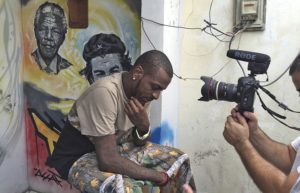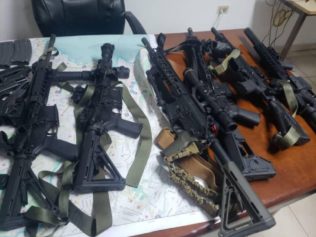
“When we do films, we tend to go into shady areas,” he explains. “I’m trying to prove hip-hop is a common language and we’re like a light that brings people together.”
What began as a simple curiosity has taken the Cuban-American DJ on a hip-hop journey around the globe. And it all began with a visit to the motherland.
“For a very long time, even growing up, I wanted to go to Cuba,” he admits. “What my family and parents saw — I felt I needed to go now. That was in 2012. I met another person who was also Cuban-American. I had never really been into the Spanish side of things, but he had already gone twice and told me about the hip-hop artists and vibrant scene down there.
“So I was like, if I went to Cuba, I wanted to have a cultural, like-minded exchange,” he says. “I told Garcia: ‘Hey, let’s go and record our experience.’ I told my friends, who weren’t even Cuban, and they were like, ‘Yeah, let’s go.’ It was all very amateur stuff.”
Just like that, Coming Home: Cuba was born. Upon his return to the Magic City, EFN and his boys put the film together and screened it locally. Soon enough, EFN’s debut production was showcased at film festivals — where it won several awards — before being picked up by Revolt, the television network owned by rapper and entrepreneur Sean Combs (AKA Diddy).
“It really went in a direction I didn’t expect. People who weren’t Cuban started gravitating towards the film. It’s like Anthony Bourdain for hip-hop,” he laughs.
Much like Bourdain, EFN brings people to unlikely places, exposing them to different cultures, but in this case through the eyes of hip-hop rather than food.
Although EFN wandered through the “shady” areas of Cuba and Peru, his familiarity with the language made it easier to navigate through those countries. In Haiti, though, the language barrier — which EFN says was “the biggest difference for [him and his crew] as filmmakers” — was real.
Read the full story at miaminewtimes.com


